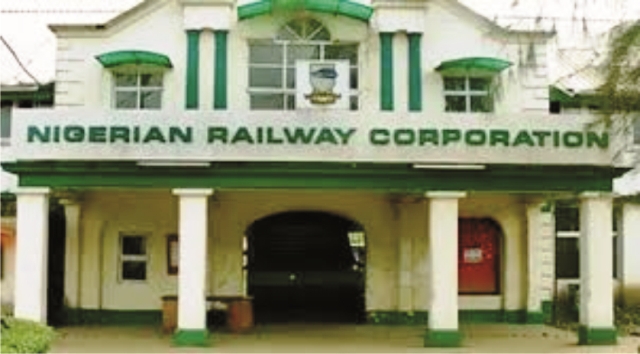Business
C’River To Rake In $100m From Cocoa Factory

One hundred million dollar is to be generated on annual basis into the coffers of the Cross River State Government from proceeds which will acrue from the state cocoa processing factory set up by the administration of Prof. Ben Ayade in Ikom Local Government Area of the State.
The State Commissioner for Agriculture, Prof Anthony Eneji, stated this during an assessment visit to the cocoa processing factory and the ultra modern rice processing factory sited in both in Ikom and Ogoja local government areas of the State yesterday.
The commissioner expressed satisfaction with the progress of work currently on-going at project sites and also said that to ensure steady availability of cocoa for processing at the factory, the state government has begun the planting of seedlings/nursery to boost production which will feed the plant when the plant becomes fully operational.
“It is a N100 billion project. Already, we have raised five million cocoa seedlings to ensure the plant does not run short of produce,” he said.
Earlier in his remarks, the Managing Director of A. A. Universal Agro Industries Limited, handlers of the project, Chris Agara, who also spoke at te event said, “the installed capacity of this processing plant is between 40,000 to 60,000 tons. What we have here is a three-phase facility. The first phase is to clean and dry the cocoa for export, thus giving a lot of value to the beans that will be exported.
“The second phase is processing the beans after which it is processed into powder in the third phase for chocolate, for beverage and other cocoa related product. The project is about 90 percent completed. The entire equipment needed for installation to complete the first phase are here.
“The economic benefits of the plant are enormous. I have been privileged to attend a number of world cocoa conferences with emphasis on the end users of cocoa products. The point is that by the time we create an identity for Ikom as a place that produces organic and pure cocoa, the entire world’s focus will be on this place.’’
“The plan is to have about four to five of this plant around here.
So, if we are generating between $500 million to $1 billion annually, you know what that means to the economy of the state,” Agara said.
The Permanent Secretary, Ministry of Agriculture, Rev Joseph Ugbe, who also accompanied the commisioner to visit the plant, stressed that the project was well conceived and by first quarter next year it should be completed.
Ugbe said, “You know Ikom has been well known for cocoa production and for this factory to be located here, it is going to benefit the people, the farmers and the State. It will also boost the Nigerian economy. We are also happy to be part of it. That is why we are here to ensure that whatever is done here is in order. The factory will provide employment for the teeming youths.”
In his welcome remarks, the Project Manager, A.A. Universal Agro Industries Limited, Dapo Obayemi, averred that the factory when fully operational would be interested in the processing of cocoa beans that is organic so as to get a flavor the can rank among flavors that are of international standard.
“it is the first of its kind south of the Niger. It is something that will yield the desired result. This is a 10-ton per hour processing factory. In terms of volume, you know what that is. Apart from that, it is something that has come to add value to cocoa processing in Nigeria. You can call this a cocoa refinery. Obayemei said.
Speaking shortly in a visit to the place of paramount Ruler of Yala LGA Ogamode Ipuole shortly after assessing the ultra modern rice processing factory, the monarch charge the state government to ensure that employment opportunities are given to youths of the host communities to work in the factory so to reduce the high rate of unemployment in the area.
The monarch said that his qiuteness concerning the land given to the state government by the community for the factory dosent nean that there were no agitations. “There are a lot and lots of agitations is just that i have been on top of the game telling my people particularly youths in the are to calm down. All we want as a community is for our youths to get opportunity to work whenever the factory kicks off.” Ogamode said.
By: Friday Nwagbara, Calabar.
Business
Eazipay Offers Zero-Interest Loans To 150,000 SMEs, Employees

With a mission to ignite growth, encourage business continuity and help businesses and employees thrive, Eazipay is gearing up to propel the dreams of 150,000 SMEs and employees to new heights through her relief fund.
Gone are the days of financial constraints and stifled dreams. With Eazipay’s support, SMEs and employees alike can bid farewell to limitations and embrace a world of endless possibilities.
Whether it’s start up, business expansion or personal development, Eazipay is here to make dreams come true.
The mind-blowing initiative, which kicked off this month, would end in December, and will also offer a range of perks and benefits designed to put a smile on the faces of SMEs and employees alike.
From exclusive discounts to various advisory services and beyond, Eazipay is committed to spreading happiness and creating lasting impact in people’s lives and to the growth of businesses.
The technology company which offers products and services that range from payroll management to IT/Device management and assessments, “Eazipay isn’t just providing financial support but also unleashing a wave of growth and prosperity for SMEs and employees across the nation.
“Interested businesses and individuals can take part in this initiative directly from the Eazipay website: www.myeazipay.com”.
Business
SMEs Critical For Sustainable Dev – Commissioner

The Commissioner of Finance, Lagos State, Abayomi Oluyomi, has described Small and medium Enterprises (SMEs) as a critical engine for sustainable development in any economy.
He said this recently at the 10th anniversary of the Alert Group Microfinance Bank and the opening of their new head office in Lagos.
According to the National Bureau of Statistics, SMEs accounted for about 50 per cent of Nigeria’s gross.
He commended the positive impact of the Alert MFB as it empowers SMEs in the State.
“Alert MFB in the past 10 years has been at the forefront of empowering SMEs in Lagos State, disbursing over N30bn in loans to over 30,000 individuals having small to medium businesses over that period, which is quite remarkable”, he said.
Speaking, the Group Managing Director of Alert Group, Dr Kazeem Olanrewaju, revealed that the financial institution commenced business in 2013 as a microfinance bank.
“We started this journey in 2013 and it has been expanding. Today, they have about 10 branches across Lagos. They have supported well over 30,000 clients and have disbursed over N30bn.
“The company has been profitable since the second year. Looking at the market and the available opportunity, the Alert MFB board decided to come together to establish a Microfinance Institute (MFI), which is the Auto Bucks Lenders”, Dr. Olanrewaju said.
The GMD further stated that the company was focused more on supporting businesses and small and medium enterprises.
“The loan to support business represents over 98 per cent. The consumer loans you will see are the ones given to entrepreneurs. So, the area of focus of Alert MFB and Auto Bucks Lenders is to support businesses across the country.
“With the establishment of Auto Bucks Lenders, we have the opportunity to also do business outside Lagos. So, presently, we have offices in Ogun State and Oyo State. We intend to go to every part of Nigeria to support what we are doing”, he declared.
Business
Retailers Explain Price Drop In Cement Cost

The cement market, in the last couple of weeks, has seen a significant turnaround with prices tumbling from between N10,000 and N15,000 per 50kg bag to between N7,000 and N8,000.
The sudden rise in the prices of cement and other major building materials in February this year upsets the construction industry, especially in real estate, where many developers were forced to abandon building sites.
A recent market survey conducted by The Tide’s source in different locations across the country confirmed a price drop, ranging between N7,000 and N7,500 per bag, though BUA cement is selling for N7,500 to N7,800 per 50kg bag, depending on location.
Both entrepreneurs and major distributors who were interviewed, explained that the price drop is due to low demand and government’s intervention.
At the peak of the price hike, the Federal Government called a meeting with major producers where it was agreed that a bag of cement should be between for N7,000 to N8,000, depending on location.
But the producers did not comply with this agreement immediately, followin which “Nigerians stopped demanding for cement; many project sites were abandoned as developers sat back and waited for the prices to come down.
“So, what has happened is an inter-play of demand and supply with price responding, which is Economics at work”, Collins Okpala, a cement dealer, told the source in Abuja.
In the Nyanya area of the Federal Capital Territory, a 50-kg bag of Dangote cement now sells for between N7,000 and N7,500, while BUA cement sells for between N8,500 and N9,500, down from between N11,000 and N12,000 respectively.
In Lagos, the product has seen significant price drop too. In Ojo area of the state, Sebastin Ovie, a dealer, told our reporter that what has happened is a crash from the January price, attributing the crash to low demand and stronger naira.
“The current price of the product is between N7,000 and N7,500 per 50kg bag, depending on the brand. This is a significant drop from the average of N12,000 which most dealers were selling in February and March”, he said.
A dealer in Agege area of the state who identified himself as Taofik Olateju, told the source that sales are picking up due to the drop in price.
He recalled that Nigerians at a point stopped buying due to the high price of the product at N15,000 per bag.
“I am sure most dealers ran at a loss then because we had mainly old stocks which we wanted to offload quickly”, he said, confirming that the product sells for between N7,500 and N8,000, depending on the brand and the demand for the brand.
Continuing, Olateju noted that “because the naira is now doing well against the dollar, it will be unreasonable for manufacturers to continue to sell the product at the old prices. I also believe that the federal government’s intervention and the threat to license more importers may have worked, leading to the reduction in price”.
In Enugu, the source reports that the product sells for between N7,200 and N7,500 depending on the brand and location.
“This is a city where the price of a 50kg bag went for as high as N12,000 and N13,000 in some cases in February and March”, Samuel Chikwendu said.
He added that the prices of other building materials, especially iron rods, have also dropped considerably which is why, he said, activities are picking up again at construction sites.
The story is slightly different in Owerri, the capital of Imo State, where Innocent Okonkwo told the source that low demand was also driving the price drop, adding that a 50kg bag was selling for N9,000 on the average in the state.
Sundry market observers are optimistic of further price reductions, but they remain cautious as manufacturers, wholesalers, and retailers continue to play critical roles in setting prices for end-users.
They lamented, however, that despite Nigeria’s status as one of the largest producers of cement in Africa, the price of the product continues to rise, particularly in the face of high inflation impacting the building materials market generally.
Okpala in Abuja highlighted the variations arising from direct sourcing from manufacturers versus procurement through dealers, with traders holding old stocks selling products at prices ranging from N8,500, N8,300 to N8,000 per bag.
Lucy Nwachukwu, another dealer in Abuja, said the significance of procurement volume in determining cement costs, noting that stability in prices has been observed over the past month, with the product retailing for between N7,000 and N7,800 depending on the brand.
In Port Harcourt also, a customer, Daniel Etteobong Effiong, said the price goes between N7500 to N8500, depending on the brand and the location one is buying from.
-

 News4 days ago
News4 days agoEx-Senate President Donates School, Healthcare Centre To Yobe Govt
-

 Niger Delta4 days ago
Niger Delta4 days agoIndorama Denies Alleged Environmental Pollution
-
Rivers13 hours ago
Ekpeye Traditional Rulers Seek Help For Odiemudie Community
-

 Business12 hours ago
Business12 hours agoEazipay Offers Zero-Interest Loans To 150,000 SMEs, Employees
-

 News4 days ago
News4 days agoFAAC: FG, States, LGs Share N1.123trn
-

 News14 hours ago
News14 hours ago524 Firms Bid For NRC’s 2024 Capital Procurement -Okhiria
-
Politics13 hours ago
How We Saved N2.3bn From LG Reforms – Diri
-
Sports12 hours ago
WADA Plans Review Of Failed Tests

